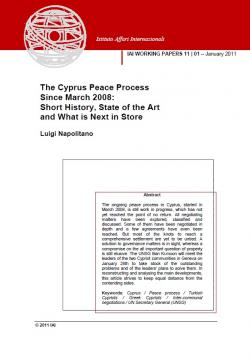Mixed Signals Still? The EU's Democracy and Human Rights Policy Since the Outbreak of the Arab Spring
For the last two decades, the EU has sent mixed signals concerning democracy and human rights to its Mediterranean neighbourhood. Has this changed since the outbreak of the Arab Spring? After observing the EU's response to the revolutions in two key countries, Tunisia and Egypt, this paper finds that signalling to Tunisia has become more coherent, while it remains ambiguous towards Egypt - a trend reinforced by US foreign policy in the region. In order to send a coherent message, the EU has to outline more concretely, what are the benchmarks and rewards for progress. For signalling to be effective, bilateral and multilateral dialogues are key. While bilateral dialogue platforms do exist, they should meet more frequently and at the highest levels. A multilateral dimension is conspicuously missing in the array of instruments set up by the EU in response to the Arab Spring, but would be crucial not only in order to understand the different democracy languages spoken, but notably also to anchor reform and set regional standards for it.
-
Details
Roma, Istituto Affari Internazionali, 2012, 8 p. -
Issue
1213 -
ISBN/ISSN/DOI:
978-88-98042-50-0
Introduction
1. The EU's reaction to a transforming Tunisia
2. The EU's response to the Arab Spring in Egypt
3. Policy recommendations



